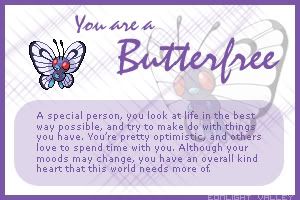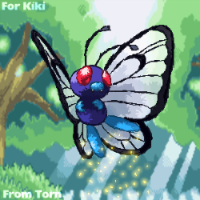| View unanswered posts | View active topics |
It is currently Thu May 14, 2020 3:24 pm |
|
All times are UTC - 5 hours |
Genesis Project: World Building
Moderator: Deciton_Reven
| Page 15 of 16 |
[ 233 posts ] | Go to page Previous 1 ... 12, 13, 14, 15, 16 Next |
Genesis Project: World Building
| Author | Message | ||||||||||||||||||
|---|---|---|---|---|---|---|---|---|---|---|---|---|---|---|---|---|---|---|---|
|
Joined: Sun Dec 25, 2011 3:14 pm Posts: 892 Location: 3 o'clock Gender: Male |
So I was thinking up some concepts for members of the duodecos. You know, just spitballing.
- A god of knowledge, observation, light. Watchful, analytical, and aloof. Patron to scholars, teachers, researchers, scientists. Under Gwendell. - A god of mirth, celebration, mischief. Carefree and impish. Generally unreliable. Patron to entertainers, performers, young children. Under Dylia. - A god of trade, travel, currency. Practical but intrepid, enterprising. Patron to travelers, merchants, the wealthy. Under Aros? - A god of fate, chance, possibility. Capricious and fickle. Patron to gamblers, mathematicians, soothsayers that don't like Ciria. Under idontknow. |
||||||||||||||||||
| Tue Feb 17, 2015 7:26 pm |
|
||||||||||||||||||
|
Joined: Mon Aug 11, 2008 9:41 am Posts: 1913 Location: In a candy coated heart of darkness. (free hugs!) Country: 
|
LG posting about a potential travel god got me to actually write this up for consideration, before anyone did to much on that. A take on a "God of Death" for the Pantheon, it might need a more fitting name, and people are free to change around qualities as they feel necessary to make other Gods, but this was the raw form. [Brackets are optional info that is depend on if other stuff even exists]
Ramilkon God of Travel, Spirits, the Afterlife Titles/Aliases: The Shepard, [???] Dominion: Guardian of the afterlife also Patron of the Lost, Destitute, and Misformed. Symbol: A howling wolf (This wolf can be depicted with wings as well) Sacred Animal: Wolf Physical Attributes: Dark Caramel skin, bald. High cheek bones with sharp features. An abstractly large nose. Eyes are always closed or otherwise hidden. Always in heavy furs of a predator, most often a wolf. Some depictions show him with gold or bone piercings, though these are rare. Some depictions will have him be a wolf himself, flying with wings or otherwise depicting him off the ground, either in mid-lunge or simply floating. Most often this will only be in works including him as only a minor focus. Qualities: Patience, Sacrifice, Forgiveness Other: Said to escort the spirits of the Dead to the realm beyond. Those who had lived a life that was "good" are said to be carried in his arms as a man, while those that were "bad" are said to be chased by his wolf form the entire way, which, depending on their transgressions, can be longer/shorter or even filled with obstacles. [He is said to despise the undead and necromancy, as they mock the very values he represents. This attribute may very well be the reason Necromancy is a taboo even when used for "good".] _________________ When my eyes be rollin' The haters get goin' The seeds I'm sowin' With a smile I'm flowin' And if I be trollin' Ya never be knowin' 'Cause when the haters get goin' My eyes just start a-rollin' |
||||||||||||||||||
| Tue Feb 17, 2015 8:45 pm |
|
||||||||||||||||||
|
Site Admin  Joined: Mon Aug 11, 2008 7:32 am Posts: 7557 Country: 
Gender: Female |
Wow this is awesome!
My only concern, is that I feel like there is a bit of overlap between Ramilkon and Ciria. I could be interpreting this incorrectly though, so let me know. Ciria is the goddess of flow, time, and living cycle. She makes sure that everyone is born, lives and dies, but does she oversee the process of death itself? If she does, then that could lead to a bit of conflict. (Oh! I also think Ciria would make a good goddess of destiny as well) I DO really like how travel and death are related, it's quite clever, in death being the final "journey" before the afterlife. Also, this talking of death has me consider what this cult thinks happens after death? Is there some sort of heaven/hell? Reincarnation? No one knows? Nothing? Spirit wanders aimlessly? Parallel reality of the living world? Do they live with the gods, happily ever after? Etc? OR, Do all gods participate in the choosing of how one goes into the afterlife. I can see Gwendell actively weighing the good and bad deeds that someone has done throughout their life.
I feel like this can be expanded into a sort of god of inspiration, creativity and the arts. WHICH could then lead to some sort of spring time festival dedicated to all that sort of stuff in honour of this god(dess) Edit: Also, what are all of your thoughts on Eratos being a sun god, and Ciria being the moon goddess. Since they have that whole brother-sister thing going on, and Eratos is the god of summer. _________________   |
||||||||||||||||||
| Wed Feb 18, 2015 12:13 pm |
|
||||||||||||||||||
|
Joined: Mon Aug 11, 2008 9:41 am Posts: 1913 Location: In a candy coated heart of darkness. (free hugs!) Country: 
|
I did try to avoid Ramilkon being an actual "God of Death", to try to avoid overlap as best I could. Ideally he only comes into the picture after the "earthly" cycle of the soul is complete. In my thoughts the afterlife, whether it's a final rest or a temporary one, is going to be disjointed, but not completely separate, from time. That way those 1000 years of punishment type deals and time freezing when you die for a god to visit you and explain "stuff" still makes sense.
Easily though Ramilkon could be some sort of Mythical Servant Figure like Cerberus, without affecting what he does to much, it really depends on what other options we get, before we set anything in stone. Here at Aperture Gospel we're just sorta throwing religion at the wall and seeing what sticks. _________________ When my eyes be rollin' The haters get goin' The seeds I'm sowin' With a smile I'm flowin' And if I be trollin' Ya never be knowin' 'Cause when the haters get goin' My eyes just start a-rollin' |
||||||||||||||||||
| Wed Feb 18, 2015 7:49 pm |
|
||||||||||||||||||
|
Site Admin  Joined: Mon Aug 11, 2008 7:32 am Posts: 7557 Country: 
Gender: Female |
Very true that could work as well, since this religion acknowledges other "lesser" gods, and spirits who work for the main 12. _________________   |
||||||||||||||||||
| Wed Feb 18, 2015 8:19 pm |
|
||||||||||||||||||
|
Site Moderator Joined: Mon Aug 11, 2008 6:37 am Posts: 1433 Location: .j Country: 
|
My interpretation was that Ciria doesn't really control death or birth, her existence simply causes those two things to happen. If she didn't exist people wouldn't die, but people couldn't be born, humans would just exist. Also, I'll try and think up some afterlife stuff after I work out another god here |
||||||||||||||||||
| Thu Feb 19, 2015 3:07 am |
|
||||||||||||||||||
|
Joined: Tue Aug 21, 2012 6:49 pm Posts: 370 Location: My house at a desk most likely Country: 
Gender: Male Currently Playing: Skyrim,Warframe, and League Of Lag |
I have a god but he needs a little work.
Serves Under Dylia Moradduc God of: Betrayal, Plague and Illness Titles/Aliases: The Death Bringer Dominion: Patron of the Guilty, Alchemists, Assassins, and Spies Symbol: A Skull with a dagger sticking out of it. Sacred Animal: Bald Ibis Physical Attributes: Dark scorched skin. He is often malnourished with large eyes. He wears a cloak to cover his malnourished body and bald head. Scars and wounds normally cover his body. Usually has two daggers one in each hand. Qualities: Vengeful, Ruthless, Unrelenting _________________  |
||||||||||||||||||
| Thu Feb 19, 2015 4:30 pm |
|
||||||||||||||||||
|
Site Moderator Joined: Mon Aug 11, 2008 6:37 am Posts: 1433 Location: .j Country: 
|
Needed a god of pestilence eventually. Would be kind of neat if he were somehow tied with this religion's afterlife. |
||||||||||||||||||
| Tue Feb 24, 2015 2:09 am |
|
||||||||||||||||||
|
Site Moderator Joined: Mon Aug 11, 2008 6:37 am Posts: 1433 Location: .j Country: 
|
Also, Just throwing out a religion I'd like to have on Istaria if possible. This religion could be the majority religion on the island though the duodecos could have a decent sized minority in the western area.
Name: Ain Sevent Summary: Ain Sevent is a religion that focuses heavily on the monstrous creatures that inhabit the Istarian cultural region and its neighboring eastern sea. The Istarian culture region is home to numerous species of large reptilian creatures that appear to be dragon-like. These creatures range from traditional winged dragons to wolf-faced snakes to enormous beasts that are essentially walking natural disasters. Followers of Ain Sevent do not worship beasts themselves, instead they worship a faceless spirit-like god who acts as a living embodiment of nature. The dragon-like beasts who dominant the local ecosystems are seen, along with man, to be their deity's ultimate creations and are believed to exist purely to keep man in check. Most of the beasts are considered to be just another part of the ecosystem and so they are hunted, killed, eaten and treated just like other animals but a small percentage of the beasts are considered 'holy' creatures1. These holy creatures are generally the most destructive of their kin and vary wildly in size. One such beast known as Monta Jur, a scaley, fanged, whale-like beast, stands at over 100 feet tall and well over 350 feet long. Beasts like Monta Jur are held in incredibly high regard and feared because of their raw and unimaginable power. History: Guiding Principles:[/b [b]Holy Texts/Lore: Holy Sites: Religious Personnel: Centre of Influence: Festivals/Ceremonies: Symbol: Deities: 1The beasts themselves aren't worshiped. These destructive beasts are just considered the apex of their deity's creation power. Some members of the religion might worship the creature as an extension of their god's power but they still will have no qualms about attacking or repelling it when it comes to destroying their homes or farms. Still working this stuff out and everything is really rough, I just thought I'd post the summary for now to see if anyone was interested or wanted to add input. |
||||||||||||||||||
| Tue Feb 24, 2015 3:07 am |
|
||||||||||||||||||
|
Site Admin  Joined: Mon Aug 11, 2008 7:32 am Posts: 7557 Country: 
Gender: Female |
I think that's actually pretty neat!
Could we throw something in regarding the moon? The moon is pretty important to the Istarians, full moons are when their different animal magics are the strongest. This also means that these nations will have dragons on their coats of arms~~ Coolio! @God of Pestilence Personally, I think the main 12 gods should be more or less neutral in their nature. Which is why there are both positive and negative qualities to each god. The way I saw it, the lack of a god's particular favour would lead to some sort of negative state. ie: Without Dylia's favour, there is no health. Without Eratos's favour, there is no victory in battle. Without Ciria's favour, the natural order falls into chaos etc, etc. The Marosians selected the main 12 as paragon deities that would benefit their empire by respecting them. However, there were also other lesser cults that existed, that were not a part of the main twelve but would be acknowledged. I'm going to make a post in a few hours to kind of make this more evident. _________________   |
||||||||||||||||||
| Tue Feb 24, 2015 1:18 pm |
|
||||||||||||||||||
|
Joined: Sun Dec 25, 2011 3:14 pm Posts: 892 Location: 3 o'clock Gender: Male |
So are any of the deities real or what? We still need a canonical creation myth.
|
||||||||||||||||||
| Tue Feb 24, 2015 1:30 pm |
|
||||||||||||||||||
|
Site Moderator Joined: Mon Aug 11, 2008 6:37 am Posts: 1433 Location: .j Country: 
|
I was under the impression that some religions would have living deity's that could interact with the world. They generally wouldn't actually be 'god-like creators' but they would be beings far stronger than humans. |
||||||||||||||||||
| Tue Feb 24, 2015 2:07 pm |
|
||||||||||||||||||
|
Site Admin  Joined: Mon Aug 11, 2008 7:32 am Posts: 7557 Country: 
Gender: Female |
What I was going to propose is that there are Elder Gods, vague primordial beings, who created our world. They have since disappeared/abandoned this realm, which left a vacuum for all these other deities to step in.
In respect to The Duodecos, the Sacred Quartet were the first four deities to fill this void, followed by the other eight, and then all the other lesser deities moved in on what The Duodecos didn't lay claim to. Of course, different religions may interpret even this differently. They may suggest that their god created the universe, ie: the Kyrens. And in regards to them being real, what Ichigo said. Ie: The Oracle will be able to display incredibly phenomenal powers said to have come from the god(s) themselves. The Duodecos, will be known for infrequent interaction with mortals, etc. _________________   |
||||||||||||||||||
| Tue Feb 24, 2015 5:05 pm |
|
||||||||||||||||||
|
Joined: Tue Aug 21, 2012 6:49 pm Posts: 370 Location: My house at a desk most likely Country: 
Gender: Male Currently Playing: Skyrim,Warframe, and League Of Lag |
Well he's not finished yet I was working on him and came up on a blank I figured we could work out some stuff like him not being to neutral.
_________________  |
||||||||||||||||||
| Tue Feb 24, 2015 6:44 pm |
|
||||||||||||||||||
|
Site Admin  Joined: Mon Aug 11, 2008 7:32 am Posts: 7557 Country: 
Gender: Female |
Ok, so I've updated this a bit, with some new information that we've been tossing around kinda.
The Duodecos: show Pantheon Dylia - Goddess of Health, Nature, Spring - < > God of Inspiration, the Arts, Celebration, Mischief - childish Trickster God - < > Goddess of the Sea, Weather, Travel, (Trade?) Eratos - God of War, Victory, Valour, Summer (Sun?) - < > God of Desire, Passion, Motivation, Chance, Fortune (Gets along/doesn't get along with Ciria?) - Irdessa Goddess of Hunting, Archery, Fire, Wildlife Aros - God of Earth Agriculture, Harvest, Autumn - Ciria - Goddess of Flow, Time, Living Cycle (Prophecy?) (Moon?) - Hok - God of Metals, Minerals, Currency, Enchantment Gwendell - Goddess of Law, Honour, Civilization, Winter - < > God of Knowledge, Wisdom, Progress, Observation (Light?) - Gaicias - God of Insight, Illusions (Potentially a god of of dreams/nightmares??) (Darkness?) Cults Ramikon - God of the Afterlife *** I feel like Gwendell, and Gaicias might have a part to play in the judgement of an individual's life, if we choose to go that route. ***WHICH would also make sense since everything dies in winter Moraduc - God of Pestilence O'zar - Volcano God of Anger, Violence, Thoughts on the roster? _________________   |
||||||||||||||||||
| Tue Feb 24, 2015 11:04 pm |
|
||||||||||||||||||
| Page 15 of 16 |
[ 233 posts ] | Go to page Previous 1 ... 12, 13, 14, 15, 16 Next |
|
All times are UTC - 5 hours |
Who is online |
Users browsing this forum: No registered users and 1 guest |
| You cannot post new topics in this forum You cannot reply to topics in this forum You cannot edit your posts in this forum You cannot delete your posts in this forum You cannot post attachments in this forum |
